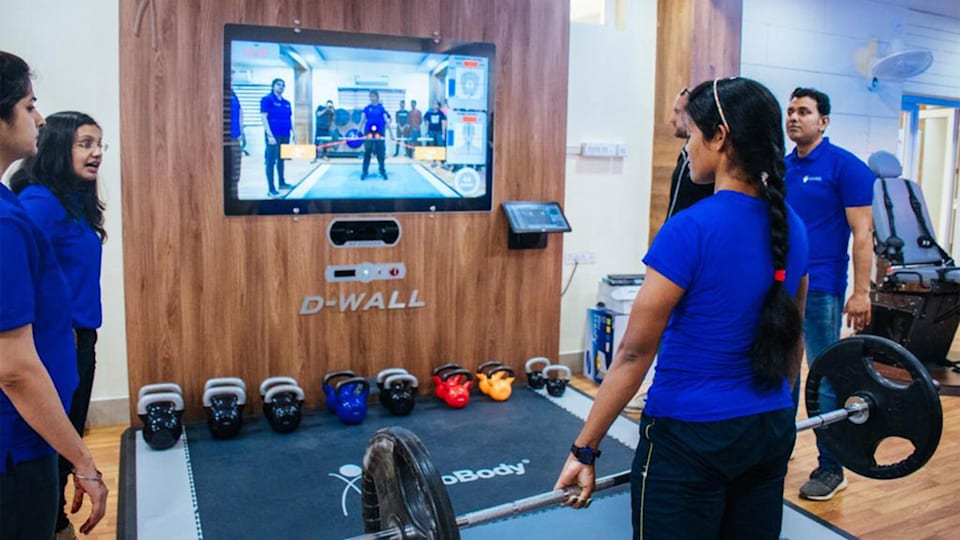India’s pioneering marksman Abhinav Bindra is growing sport at grassroots level
As one of the best shooters of his generation, Abhinav Bindra became, at Beijing 2008, the first Indian athlete to win an individual Olympic gold medal, and has won multiple medals at both the Commonwealth Games and the Asian Games. Since 2010, he has dedicated much of his time to developing sport across Indian society, building new facilities in underprivileged communities and bringing elite sports science centres to major cities through the Abhinav Bindra Foundation.

Abhinav Bindra first realised the impact that sport could have on communities when he returned home to India after clinching gold in the men’s 10m air rifle event at the Olympic Games in Beijing. “I was quite taken aback by the response I got from my country,” he recalls. “One of the biggest lessons I learned from that victory was that it wasn’t just about personal ambition, but it meant so much to so many people. And that’s when this whole idea really started. I wanted to give something back to society, to sports development at the grassroots level.”
Bindra is an elite competitor who has also won World Championship and Commonwealth gold medals in his category. He is an IOC Athletes’ Commission member and will take part in the International Athletes’ Forum that will take place from 13 to 15 April in Lausanne, Switzerland.
He had long been frustrated by the lack of access to high-quality training facilities in his homeland. As a result, he felt many young Indian athletes without the means to travel abroad lacked a pathway to Olympic level. “Training in India was always a Plan B for me, but to progress we need to make the facilities at home the Plan A for our athletes,” he says.
Initially, Bindra’s projects were entirely self-funded, and to date he estimates he has spent close to half a million US dollars of his own money on developing infrastructure across the country. He began by building new facilities – or enhancing existing structures – for sports such as football, volleyball and basketball in a series of villages in some of the poorest areas of rural India.
“These communities lack access to many of the basic things in life,” he says. “So we funded the construction of playing fields, and provided them with basic equipment. We really wanted to make sure we give access to sport to all the young kids in these areas – so they can learn valuable life lessons, do physical activities to keep them healthy – and also educate both children and parents about the benefits of sport.”
Since then, with the help of a number of major corporate entities, the Abhinav Bindra Foundation has been able to take this vision further, creating a series of world-class sports science facilities in major cities. Based on what Bindra likes to refer to as STEAM (science, technology, engineering, analytics and medicine), these centres offer everything from sleep monitoring analysis to cryotherapy, and can be accessed by hundreds of athletes, ranging from world medallists to wide-eyed 11-year-olds with big dreams.
“It’s really in the last couple of years that we’ve created some cutting-edge infrastructure,” Bindra says. “One of our facilities is in the heart of a city, and it’s working closely with a hospital. So if injury management is required, it’s right there and accessible so the athletes don’t need to travel.”
The centres are also using sports science in a conscious effort to identify and scientifically develop the skills of athletes with potential, from all walks of life, where otherwise they might have slipped through the net. “They do a whole series of tests, so for example if we’re scouting for shooting talent, we do a series of tests on stability to see who has the most natural talent for that,” Bindra says. “But we also interview them, which we place a lot of emphasis on, because at that young age, what we’re looking at is mental aptitude and how focused and determined they are.”
Bindra believes it is particularly important for developing athletes to learn about their body from a young age, through sports science. Getting this education as early as possible is crucial to having a long and successful career. “It’s an important process for them, to get the best foundation in place, so they are well equipped once they face the rigours of competition, and constant travel, as they develop,” he says.
The foundation has already made a considerable difference to sport across India. Many of the athletes who utilise the sports science centres as part of their training have subsequently won World Championship medals or medals at last year’s Commonwealth Games on Australia’s Gold Coast. But 36-year-old Bindra has even bigger dreams: to truly bring sports science and technology to the masses by establishing mobile centres which travel around the country.
“The whole idea is to bring the accessibility of these facilities to the grassroots,” he says. “I’m a strong believer that, to develop sport in India, it has to be a bottom-up approach, opening the minds of athletes and coaches from the lowest levels to the best practices in scouting, training and injury management available across the world.
“Right now, our centres are based in different locations, but we want to be able to take them to the people, and various parts of the country. Because I really do believe in the talent we produce, and we have so many young people who require that basic guidance. So we want to take that knowledge to them, and impact them.”